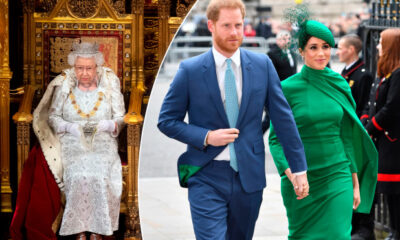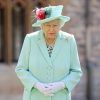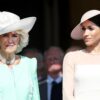Updates
Queen Elizabeth II First Monarch to open the Canadian Parliament
Her Majesty paid a state visit to the United States in 1957, and spoke on behalf of the Commonwealth in the United Nations General Assembly. During the same trip, Elizabeth became the first monarch of Canada to open a parliamentary session when she opened the 23rd Canadian Parliament. She returned to the United States and toured Canada two years later, exclusively in her role as Queen of Canada.
On the same day, Her Majesty Queen Elizabeth II read the Speech from the Throne, accompanied by His Royal Highness Prince Philip.
Trending:
Interfere in next Canada election
Foreign state-sponsored actors will attempt to influence the next Canadian federal election, but not on the magnitude of the campaign waged against the US, according to Canada’s electronic signals intelligence agency.
According to a new study published on Friday by the Communications Security Establishment, having an election during the COVID-19 epidemic may raise the danger of foreign intervention because of the necessity to bring more components online.
According to the report, “We assess that an increasing number of threat actors have the cyber tools, the organizational capacity, and a sufficiently advanced understanding of Canada’s political landscape to direct cyber activity against future Canadian federal elections, should they have the strategic intent.”
According to a CSE study, state-sponsored actors with ties to Russia, China, and Iran have carried out the majority of cyber threat activities against democratic processes across the globe.
“We judge it very likely that Canadian voters will encounter some form of foreign cyber interference ahead of, and during, the next federal election.”
“While any modifications to the electoral process have the potential to increase the cyber threat, we assess that the planned changes do not substantially expand the cyber threat to Canada’s democratic process,” it said.
While no formal election date has been set, the federal parties seem to be in full campaign gear, with Parliament pundits predicting that the writ will be issued in August.
According to a January 2017 US intelligence assessment, Russian President Vladimir Putin orchestrated an influence operation, including cyber assaults, to help Donald Trump win the 2016 presidential election. The accusations are denied by Moscow.
The CSE study comes just weeks before Prime Minister Justin Trudeau is set to call a federal election, which would be Canada’s second in as many years.
The study also offers instances of what foreign-state businesses could do, such as focusing on an anticipated rise in mail-in votes.
According to the CSE study, “We assess that it is very likely that false information connecting voting by mail to voter fraud will circulate in Canada in relation to the next federal election.”
We have seen that COVID-19-related changes to elections, such as more people choosing to vote by mail or delays in the dissemination of results, have spurred falsehoods and conspiracy theories that call into question the legitimacy of election results. This is happening at a time when the online information ecosystem is already rife with false and misleading content.”
The CSE did not name any countries it suspected of attempting to sway Canadian voters.
Because of the pandemic, the election will be unlike any other in Canada, with more activities and procedures being transferred online to limit the spread of COVID-19.
Popular Posts:
- Queen’s damning reply to Prince Harry’s ‘what Meghan wants, Meghan gets’ outburst
- Here’s Why Meghan Markle Cannot File Harry Divorce In US
- Meghan Markle ‘escorted out of Prince Charles’ garden party’ in unearthed video
- Here’s Why Meghan Markle Cannot File Harry Divorce In US
- Prince Harry ‘kept asking for more money’ and Prince Charles got ‘fed up’
- Prince Charles ‘deliberately’ left Meghan out of Archie’s birthday message
- Prince Harry and Meghan ‘blamed staff when they didn’t get their way’
- Prince Harry has been ‘brainwashed’, says biographer
- Meghan Markle blogged about Kate’s wedding before claiming she ‘didn’t know much about royals’
- REVENGE: Beatrice’s pregnancy announcement total dig at Meghan Markle
- Damage is done: Prince Harry warned rift with Prince Charles is widening beyond repair
- Meghan Markle Oprah interview claims debunked by own blog post
- Queen and Charles deeply upset with Harry’s rants
- Prince Harry faces Backlash for podcast interview, Duke ‘making too much noise’
- Harry and Meghan are ‘trolling the world’ with hidden photos Archie, says their biographer
- Prince Harry Demands wife Meghan Markle Be Part Of Princess Diana’s 60th Birthday Tribute Or He Won’t Show
- Harry and Meghan are ‘trolling the world’ with hidden photos Archie, says their biographer
- Meghan Markle’s Plastic Surgery
- Meghan and Harry CAN’T do another bombshell interview – ‘Can only do one’
- How Kate Middleton earned the Queen’s respect
- William and Kate prove they are NOT ‘trapped’ despite Harry claims
- Kate Middleton ‘won’t be walked over by Meghan Markle,’ says Jenny Eclair
- Meghan ‘wasn’t too keen’ on living in smaller place than Kate and William after royal wedding
- Meghan Markle was a ‘failure’ in Hollywood, biographer reveals
- Meghan and Harry are trying to start ‘alternate woke Royal Family,’ Expert says














































